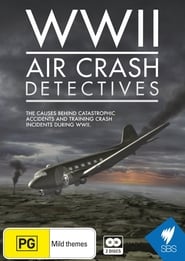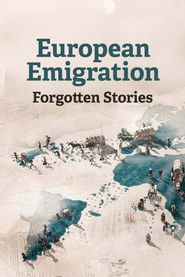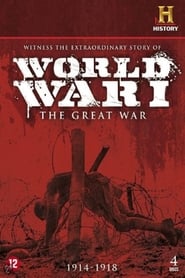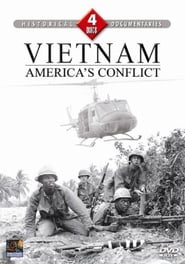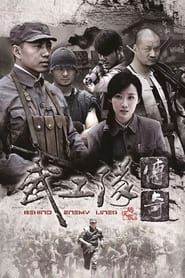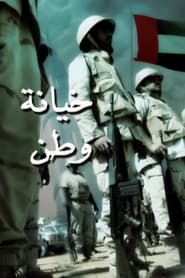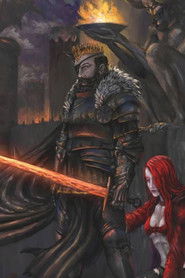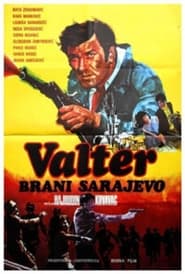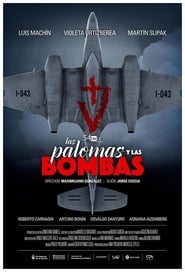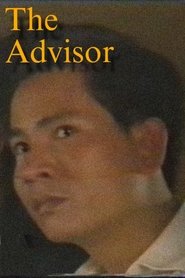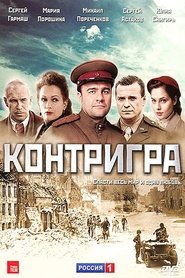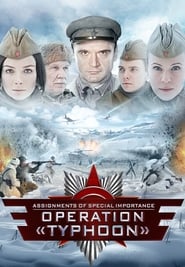War Politics TV Series - Page 101
-
WWII Air Crash Detectives
2014
star 2.5Garth Barnard has a lifelong passion and unshakeable resolve to investigate how thousands of young Airmen from the Second World War died in catastrophic air accidents and training crashes. -
情仇姐妹
2012
情仇姐妹
2012
-
European Emigration: Forgotten Stories
2025
This is the story of one of Europe's biggest migrations; one of people fleeing poverty or persecution and hoping for a better life. German-speaking people descended the Rhine and Danube rivers, from the 17th century until the end of the First World War, and settled in America, Eastern Europe, Russia and Africa. -
英雄联盟
2013
-
World War I: The Great War
2009
HISTORY is proud to present the definitive collection of documentary programs on World War One. Experience the world-changing events from the birth of what became known as The Great War to the tragic, final day where over 13,000 men died. From the first dogfighters and the Red Baron, to the battle of The Somme, John J. Pershing, The Iron General and the Last Day of WWI. In the four year period from 1914 - 1918, the war was responsible for over 40 million casualties and over 20 million deaths. Join the brave servicemen of land, sea, and air as they valiantly fought alongside their Allied brothers in this "war to end all wars." -
Vietnam America's Conflict
2008
Be an eyewitness to the conflict that divided our nation and changed the very fabric of society. This collection of harrowing and compelling footage traces the evolution of this conflict from a regional military engagement to an ever-expanding war that ultimately spanned three U.S. Presidents. From strategic political move to the immediacy of jungle warfare and the weapons with which the war was waged, Vietnam: America"s Conflict captures the sweep of history and the agony of a generation. -
武工队传奇
2013
武工队传奇
2013
-
1914-1945: They Made History
2016
star 7Between 1914 and 1945, two major conflicts engulfed the planet. Among the combatants of the First World War, eight men would play a decisive role in the next one. -
Betrayal of a Nation
2016
Betrayal of a Nation
2016
star 10It is an Emirati drama that was shown in Ramadan 2016 taken from the novel "Ritaj" by the novelist Hamad Al Hammadi and produced by Abu Dhabi Media Company. The series talks about the organization of the Muslim Brotherhood and how it worked secretly within the joints of the state for many years. It also touches on the history of the organization and dives deep into the social life of its members, indicating the ideas they hold and the principles on which they are based. -
A Song of Ice and Fire
1996
Set in the fictional continents of Westeros and Essos, A Song of Ice and Fire is a sprawling epic of power, betrayal, war, and survival. As noble houses vie for control of the Iron Throne, ancient forces stir in the North, threatening to engulf the world in darkness. From the cold Wall in the far north to the sun-scorched lands of Essos, the series follows a vast cast of characters—lords and ladies, knights and assassins, bastards and queens—whose fates intertwine in a brutal game where loyalty is rare and victory often comes at a terrible cost. With complex politics, morally grey characters, and shocking twists, the series redefines the boundaries of fantasy fiction. -
The Advisor
1996
The Advisor
1996
In 1960s South Vietnam, an undercover agent slowly works his way up through the ranks of Ngô Đình Diệm's administration to become one of its most prominent advisors -
1979 - The Year Of The Islamist Revolution
2022
star 8During the 1970s the Middle East was a battleground for the Cold War; liberal pro-Western forces battled with pro-Soviet Arab Nationalists and Baathists. But in 1979 a series of events – the Iranian Revolution, Egypt’s peace with Israel, the Mecca Mosque Siege, and the Soviet Invasion of Afghanistan – contributed to a radical change in the mind-set of the region and its leaders. It was the start of the meteoric rise of radical Islam. -
KAINAR
2013
KAINAR
2013
star 8In 2200 AD, the earth's unified government began to implement the space autonomous region construction plan, and officially entered the space colonization era in 2211 AD. After 2300 AD, humans have established more than 300 space autonomous regions, floating in the vast solar system. For hundreds of years, the earth, the moon, Mars, and the space pirate organization have become the four major forces in the universe, and the four forces see each other. In the end, can human beings break through their own destiny of struggle, and can they truly enter a new century in history? -
Контригра
0000
-
Assignments of Special Importance
2013
star 1A group of Soviet spies performs missions of special importance during World War II.
